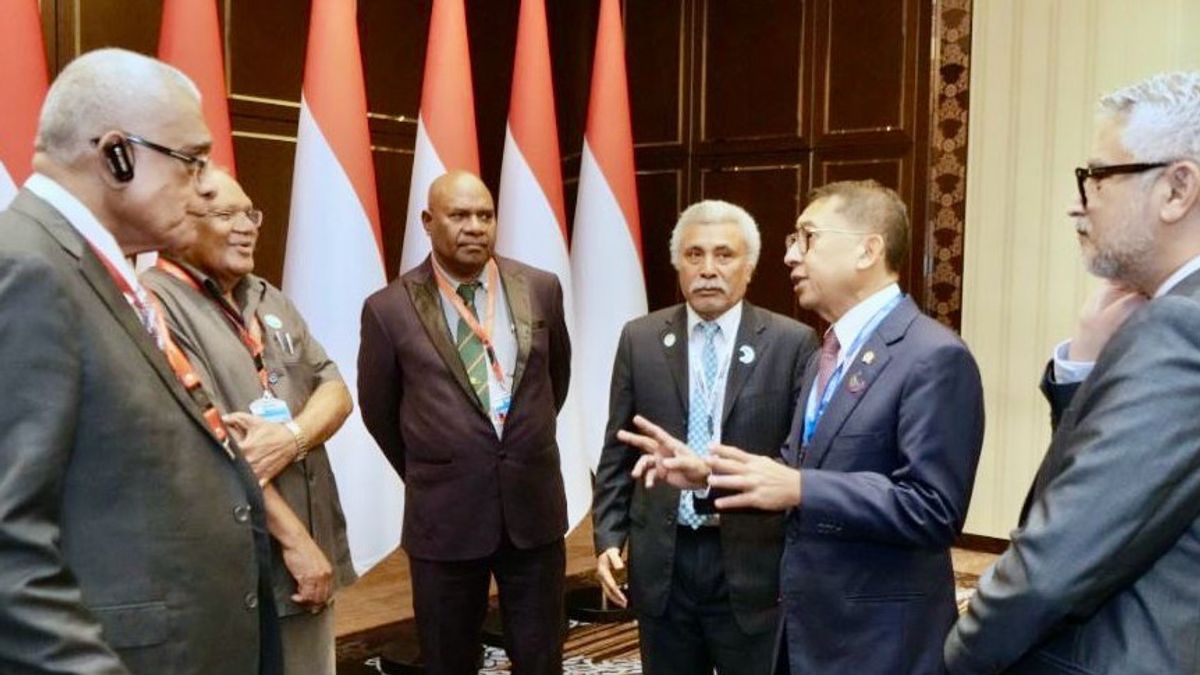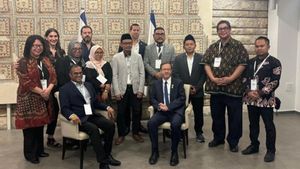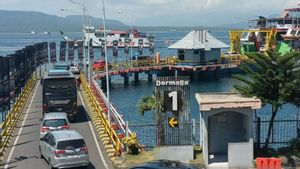JAKARTA - The DPR held its 2nd Indonesia-Pacific Parliamentary Partnership (IPPP) session last week, which is a forum for Indonesia's parliamentary partnership with the parliament of Pacific countries. There are 13 agreements to strengthen relations between Indonesia and the Pacific, including affirmation of the country's sovereignty.
"There are thirteen agreements generated at the IPPP conference, all in line with the purpose of this meeting to increase the role of parliament in fostering partnerships and cooperation between Indonesia and Pacific Islands countries," said Chairman of the Indonesian House of Representatives' Inter-Parliamentary Cooperation Agency (BKSAP) Fadli Zon, Monday, July 29.
"Berdasarkan pada komitmen bersama meningkatkan konektivitas regional dan pembangunan inklusif untuk mengatasi tantangan regional dan global yang beragam dan belum pernah terjadi sebelumnya," imbuh Legislator dari Dapil Jawa Barat V ini.
With this mutually agreed commitment, Fadli said it was hoped that Indonesia and Pacific Islands countries could increase regional connectivity. In addition, it is also related to inclusive development to overcome regional and global challenges.
The thirteen agreements on IPPP 2 listed in Chair's Summary are the first to reaffirm its commitment to increasing economic, political and social connectivity in the region, with the vision of making the Pacific an integrated, closely connected region to achieve collective welfare.
Fadli assessed that the Pacific Islands region has the potential to become a market for Indonesian commodities, and vice versa. With cooperation, he considered the potential for economic improvement to be very open.
SEE ALSO:
I think by sea, our commodities can reach their countries and vice versa. They can also understand that our country has great potential, but this issue of connectivity is one of the issues," explained Fadli.
With this regional connectivity cooperation agreement, Fadli assessed that market development opportunities for Indonesian products are increasingly wide open.
"We have to explore it, yes, it must be made. How is this economic very possible. Therefore, relations must be built between the community, B2B, then the Government and parliament support each other, stakeholders," he explained.
Then the second IPPP agreement is in terms of maintaining regional peace and security to build resilience, and creating prosperity for the people of each country.
"This is based on the principle of mutual trust and respect for the sovereignty and territorial integrity of each country through parliamentary diplomatic tracks," said Fadli.
The third agreement, conveyed by Fadli, is to affirm the ocean ocean's perspective as an adhesive, not a separator, by respecting cultural diversity, increasing diplomatic and political involvement as a unifying element in the framework of strengthening cooperation and mutual understanding more sustainable.
"Regional connectivity is very important, this area seems to be divided by the sea even though it is united by the sea to become the Pacific Ocean or the Pacific Ocean unites us," explained the member of Commission I of the DPR in charge of defense affairs and international relations.
Then the fourth agreement emphasized joint attention to issues of economic uncertainty, real impacts of climate change, sea degradation, natural disasters, food security threats, and maritime security. Fifth, the urgency of increasing collaboration, partnerships, and connectivity.
"Based on the principles of mutual respect for territorial integrity and sovereignty to build a basis for regional peace, security and welfare," said Fadli.
On the other hand, the urgency of parliamentary diplomacy to create a fairer, more resilient, and prosperous future for all is the sixth agreement. Fadli said the IPPP in the seventh agreement also highlighted concerns about the degradation of marine, ocean, and marine biodiversity due to marine debris, water pollution, plastic, and unsustainable exploitation.
"Where all of these have a negative impact on human health, food security, economic progress, and inclusive development," he said.
"As a maritime country, Indonesia has great strength for this. We will fight for Indonesia to have a clean and healthy sea," continued Fadli.
The next agreement is related to the urgency of closer interaction between Indonesia and countries in the Pacific. In particular, said Fadli, through exchange in the fields of education, socio-cultural, and inter-community relations.
"For this exchange in education, it is very much expected by the Pacific state. It can be seen when we visit IPB University, they hope that in the future they will provide more scholarships for students from the Pacific country," he said.
Fadli also explained the urgency of South-South Cooperation as a platform to increase regional connectivity into the ninth agreement of the IPPP. Then the 10th agreement is the urgency to encourage regional development in accelerating the achievement of sustainable development goals (SDGs).
"Through the use of sustainable marine resources and a blue economy such as in the fisheries and aquatic sectors, port connectivity, renewable energy, promoting sustainable food production and use, sustainable marine tourism, and empowering women and youth in the maritime sector," he explained.
IPPP also considers that increasing cooperation in reducing the impact of climate change is very important so that it is included in the 11th agreement. In addition, IPPP should also pursue climate adaptation measures, especially for the rehabilitation of coastal land, protection of marine ecosystems, and empowerment of communities in the Pacific.
Fadli said, the urgency of increasing economic growth through trade, investment, and business partnerships supported by the important role of communication technology, digital infrastructure, and transportation networks became the 12th agreement at the IPPP Session yesterday.
"So they don't have directs even though we are close together. If for example we make eastern Indonesia a hub for the Pacific country, it is very possible," he continued.
Fadli also emphasized how important Indonesia's role in the South Pacific is, starting from abundant natural resources such as oil, natural gas, and marine resources that need to be maintained. Indonesia is also a strategic trade route for connecting the Indian Ocean and the Pacific Ocean.
As the largest archipelagic country in the world, according to Fadli, Indonesia has an interest in maintaining the security and stability of the surrounding region and waters, including the South Pacific. With these agreements, it is hoped that it can strengthen sovereignty and ensure the security and maritime areas of each country.
For the 13th agreement, the forum is committed to utilizing IPPP as an important platform for regional engagement by developing the forum as an Indonesian parliamentary assembly and Pacific region.
"This is related to the DPR's commitment to strengthening cooperation with the parliaments of Pacific countries in the fields of capacity development, bill design, technological innovation in parliament, information exchange, and others," concluded Fadli Zon.
The English, Chinese, Japanese, Arabic, and French versions are automatically generated by the AI. So there may still be inaccuracies in translating, please always see Indonesian as our main language. (system supported by DigitalSiber.id)

















